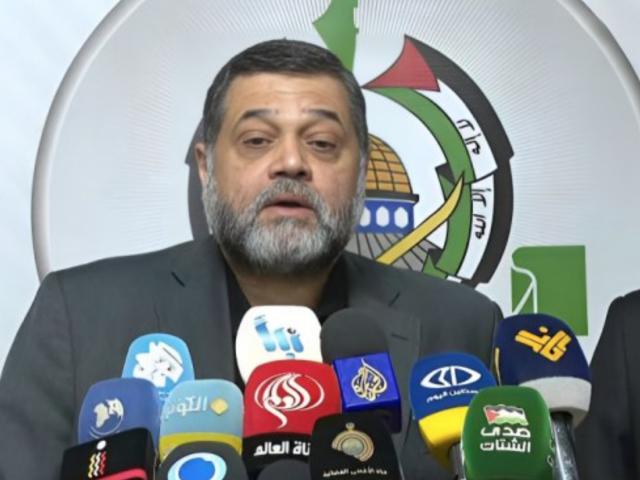In a recent revelation that escalates tensions in the Middle East, a Hamas official starkly opposed the latest Gaza ceasefire-hostage release proposal, initially approved by Israel, following an uncompromising declaration by Benjamin Netanyahu to invade Rafah regardless of the deal's status. Osama Hamdan, a prominent figure within Hamas who is based in Lebanon, declared the group's outright rejection of the proposal, warning that Hamas would abandon the negotiation table if Israel pursued a ground operation in Rafah. Although Hamas' press office later indicated that discussions were still underway, the threat of disengagement looms large.
The stakes of the ongoing negotiations for peace in the Gaza Strip have surged as sources unveil the complexities entwined with reaching a ceasefire between Israel and Hamas. Egypt, aiming to broker peace, has put forth and received Israel's approval for a significantly detailed proposal, backed by U.S. Secretary of State Antony Blinken as "extraordinarily generous," which envisions not just a temporary ceasefire but a roadmap towards a lasting resolution. However, the enduring rifts underscore the arduous journey toward peace.
BREAKING:
— Open Source Intel (@Osint613) May 1, 2024
Senior Hxmas official Osama Hamdan told the Al-Manar network:
"We made it clear that our position is negative regarding the draft of the current negotiations"
Via @IsraelHayomHeb pic.twitter.com/NozwTMPqlZ
Under the Egyptian initiative, Hamas would initially release 20 to 33 hostages taken last October, reciprocated by Israel's release of 600 Palestinian prisoners. This phase is designed to foster a durable calm and pave the way for subsequent negotiations that could see the exchange of more hostages, Israeli soldiers, and remains of deceased hostages for additional Palestinian detainees. Earlier proposals began with at least 40 hostages returned, but Hamas rebuffed those offers, with some speculating that Hamas does not have 40 live hostages in custody.
Despite the current proposal's favorable terms for Hamas, Netanyahu remains adamant about initiating military operations in Rafah, a city now a sanctuary for over a million people, irrespective of any ceasefire agreement. This bold stance, communicated during discussions with Blinken, underscores Israel's preparedness to act independently, signaling the gravity and immediacy of the crisis. Netanayhu has stated from the outset of the operation which began when Hamas crossed the border and massacred over 1200 Israelis, that the primary objective is to eradicate Hamas from the strip. Leaving Rafah untouched would be seen as a failure to accomplish this, and would still not result in the return of all Israeli hostages, which is also among the top objectives of Israel's campaign.
The Hamas theory: Attack Israel, massacre 1,000 people, take 250 hostages...get Hamas terrorists released from prison via a deal and ceasefire, go back to October 6. Do it again.
— Seth Frantzman (@sfrantzman) May 1, 2024
This immense privilege and impunity Hamas enjoys is solely due to the fact that it is backed by the… https://t.co/6i1il6nMp9
On the diplomatic front, the Islamist nation of Qatar which has been a staunch ally to Hamas has been involved in shepherding the talks, but is increasingly beign seen as bias and not an honest broker. The Muslim Brotherhood aligned nation has been hosting Hamas' leadership in Doha for over a decade, enabling the terror leaders to live in luxury while coordinating attacks on Israel from safety. Although Qatar, alongside the U.S. and Egypt, managed a temporary cessation last November, it has recently voiced its discontent, hinting at a potential withdrawal from the mediation efforts due to what they call unfair coverage internationally of their efforts and claims, like the above, that they are not honest brokers.
During his engagement with Netanyahu, Blinken criticized the absence of a civilian protection strategy in Israel's approach to Rafah, advocating for alternative solutions to combat Hamas' threat. These diplomatic maneuvers reflect the global community's acute awareness and its concerted push for a resolution that not only mitigates humanitarian crises but also ensures long-term stability in the region. To Netanyahu's credit though, he has pushed back at the claims that Israel is not protecting Gaza civilians by showing how Israel has set up and already moved hundreds of thousands of Gazans into safe zone tent cities.
These facts must be acknowledged:
— Congressman Byron Donalds (@RepDonaldsPress) May 1, 2024
Hamas uses human shields
Hamas started this war
Hamas committed unspeakable crimes
Hamas can end this but REFUSES
Hamas won't release the hostages
Hamas REJECTS every chance for ceasefire
If you understand this, there's nothing else to discuss. pic.twitter.com/0OSczwWUYd
As the world watches intently, the actions of Hamas could drastically shape the ongoing conflict's trajectory. With over thousands of Palestinian civilians already killed and extensive devastation across Gaza, the looming possibility of an Israeli escalation intensifies the urgency for a diplomatic breakthrough, elevating the stakes to critical humanitarian and geopolitical heights.


